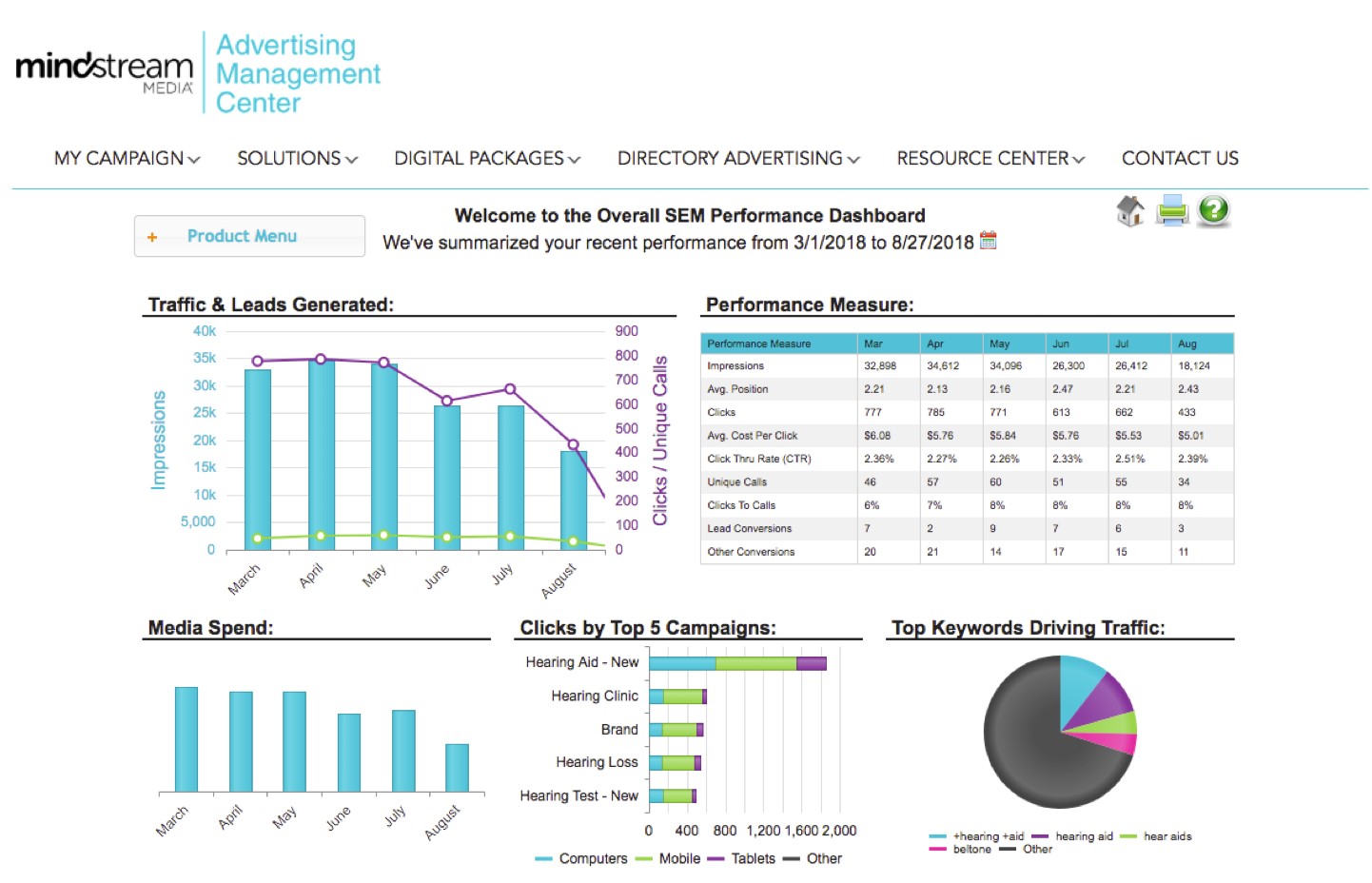Google Search Campaigns: 5 Top Questions from Advertisers
Understandably, advertisers have a lot of questions about their Google search campaigns. One of the biggest questions we get from advertisers is “Why can’t I find myself on Google?” In this article, we’ll explore this, plus a few other top questions as an introduction to Google search advertising campaigns.
No. 1: Why can’t I find my ad on Google?
After beginning a search campaign on Google, it can be tempting to want to see your ads ‘in action’ by searching for them yourself. First of all, this is not recommended as it can negatively affect your campaign performance.
“By performing searches that trigger your ad, you’ll accumulate impressions without clicks, which can lower your click-thru rate (CTR) and prevent your ad from appearing as often as it should,” according to a Google Ads Help article. You also might stop seeing it altogether, as not clicking on an ad that you’re repeatedly served leads the search engine to believe you’re not interested, or the ad is not relevant.
There are many different variables that affect whether or not an ad is displayed when users conduct searches. Budget, geography, interests, behavior, ad scheduling and auction criteria all play a role. Frequency capping and optimizing for qualified leads also affect ad placement.
If you’d like to confirm that your ad is running without affecting campaign performance, you can check the status and preview the ad in the Google dashboard. Or, if you’ve partnered with Mindstream Media Group on your campaign, it’s as simple as reaching out to your account contact.
No. 2: What determines ad position in search results?
Google uses an ad auction concept to decide which ads to show and in which order they are shown on a search results page. When a search is conducted, the search engine first narrows ad results down to keyword matches.
From there, ineligible ads (that target a different location, for example) are removed. Ads with a low expected CTR and that don’t meet the minimum quality standards set by Google are also removed.
Then, the system determines which ads and related landing pages would provide a good user experience. Ads not removed by the preceding criteria are then shown on the results page. Google determines the order of the ads based on a variety of factors including Ad Rank, bid amount, search context, ad quality and expected impact.
The auction process is repeated every time a search is performed, and since it depends on real-time factors and competition, results (ad position) can fluctuate. What’s important to note is that the highest bidder doesn’t always get the best ad position.
Related: Google Says Goodbye to Average Position
No. 3: What are some ad quality guidelines?
Google equates relevancy to performance: the more relevant an ad, the better it will perform. To make your ads more relevant and hence, higher quality, the first suggestion is to create ad groups within your campaign to focus on a single product or service. This enables the search engine to deliver a more targeted result rather than based on a broad topic. For example, a footwear retailer’s focus on riding boots as opposed to women’s shoes.
Another guideline is to include specific keywords directly related to your ad group and landing page. Avoid generic keywords and consider using two to three words at a time instead of just a single keyword.
It’s also recommended to use keywords in your actual ad text, especially the ad headline. When searchers see their terms in your ad, it tells them your ad is directly relevant and increases the chance that they’ll click on your ad.
Other guidelines for improving ad quality include distinguishing your unique features, using a strong call-to-action, testing different ad text and reviewing results on a regular basis.
No. 4: Where will potential customers see my ads?
When you advertise on the Google Search Network, your ads can appear not only on Google search results pages but also other Google sites like Play, Shopping, Maps and YouTube, as well as non-Google sites, webpages and apps in the Search Network.
Sites in the Search Network that partner with Google to help extend the reach of your ad are called search partners. On partner sites, your ads can appear in search results, on directory pages or on other pages related to a person’s search criteria. While partner sites are included by default on search campaigns, they can also be disabled based on your specific needs.
Related: What You Need to Know Before Advertising on YouTube
No. 5: How is search campaign performance measured?
Campaigns can be measured by a number of factors, including (but not limited to) impressions, leads, traffic, average search ranking, clicks, average cost per click and conversions. (If you’re a little rusty on some of the commonly used digital marketing terms, brush up with our handy glossary.) Clicks and impressions are a good place to start when looking at campaign performance, but it also depends on your business goals.
If you’re unsure of which metrics you should be evaluating, a partner like Mindstream Media Group can help. Our clients have access to a reporting dashboard which provides detailed, interactive graphs that can be filtered and customized. In addition, you have a dedicated digital marketing consultant to help you understand the campaign data and optimize your results.

Summing it up
Familiarizing yourself with these top search-related questions from advertisers is just the beginning – as Google continues to innovate, update algorithms and advance their advertising programs, there will be no shortage of learning opportunities to come. And, if you’re feeling overwhelmed navigating your search advertising campaigns on your own, contact us to see if Mindstream Media Group is the right partner for you.
Related video: Is it time for a paid search audit?
More from Mindstream Media Group

Meet the Mindstreamer – Chandler Swanner
Chandler Swanner’s interest in advertising dates back to her childhood. Her mother (and role model in life) was a Media […]

Third-Party Cookie Phase-Out: What Marketers Need to Know
Cookies are an essential part of internet usage, allowing websites to remember you and provide a more personalized experience. This […]

Meet the Mindstreamer – Kaya Bucarile
She plans and oversees media strategy for agency clients, working closely with project and platform managers to ensure that we […]
